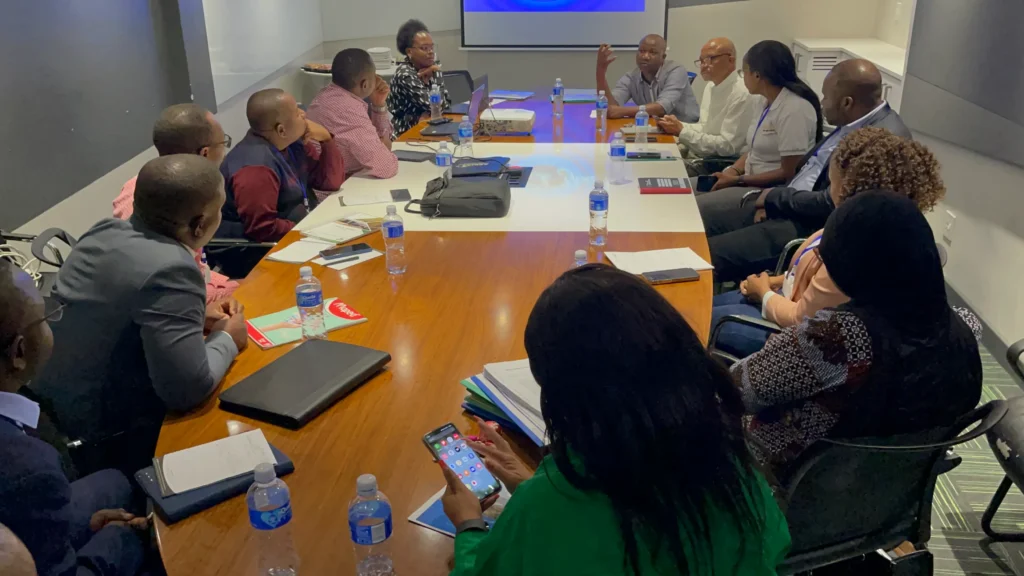At Synergy Evolution, we understand that financial integrity is the bedrock of trust in the financial world, especially in South Africa’s dynamic economy.
When we talk about financial integrity, we’re referring to the steadfast commitment to accuracy, reliability, and transparency in financial information and statements, particularly during audits.
In this blog post, we’ll delve into the essence of financial integrity, explore its significance in the South African context, and discuss strategies to maintain it during audits.
Understanding Financial Integrity
Financial integrity is essentially a financial system that functions with transparency, accountability, and clean practices.
It’s the opposite of a system riddled with corruption, money laundering, and hidden activities. Here’s a breakdown of the concept:
- Transparency: Financial activities are clear and easy to understand. You can see where the money goes, who is involved, and how decisions are made.
- Accountability: There are systems in place to ensure that people are responsible for their financial actions. This includes following regulations and being held responsible for misuse of funds.
- Clean Practices: Financial activities are conducted legally and ethically. There’s no room for hiding money, fraudulent transactions, or illegal sources of income.
The Role of Audits
Audits play a critical role in upholding financial integrity.
They act as independent assessments that verify the accuracy and completeness of financial information. Here’s how audits contribute:
- Assurance on Financial Statements: Audits provide an unbiased opinion on whether a company’s financial statements are fair and accurate. This builds trust with investors, creditors, and other stakeholders who rely on these statements for decision-making.
- Detection of Errors and Fraud: Auditors meticulously examine financial records to identify any discrepancies or suspicious activities. This helps to uncover errors, inefficiencies, or even potential fraud.
- Compliance with Regulations: Audits ensure that companies adhere to relevant accounting standards and financial regulations. This helps to maintain a level playing field and prevents manipulation of financial data.
- Risk Management: The audit process often identifies weaknesses in internal controls. By addressing these weaknesses, companies can improve their risk management practices and safeguard their financial assets.
Challenges To Financial Integrity in South Africa
South Africa, like many nations, faces challenges in upholding financial integrity. Here are some of the key hurdles:
- Corruption: South Africa has a history of corruption, with public officials sometimes misusing funds for personal gain. This undermines trust in institutions and diverts resources away from important public services.
- Money Laundering: Criminal activities generate a significant amount of illegal money. South Africa is vulnerable to money laundering schemes, where criminals try to disguise the source of their funds. This can distort the financial system and make it harder to track illicit activities.
- State-Owned Enterprise (SOE) Mismanagement: Some state-owned enterprises in South Africa have been plagued by mismanagement and allegations of corruption. This can lead to financial losses and weaken public confidence in the government’s ability to manage resources effectively.
- Cybercrime: The rise of cybercrime poses a new threat to financial integrity. Hackers can target financial institutions and steal money or personal information. This can disrupt financial systems and erode trust in online transactions.
- Lack of Financial Literacy: Many South Africans lack a basic understanding of financial products and services. This can make them more vulnerable to scams and financial exploitation.
Strategies for Upholding Financial Integrity
Financial integrity thrives on a foundation of strong practices and a culture of accountability. Here are some key strategies to consider:
Individual Level:
- Transparency in Personal Finances: Maintain clear and organized records of income and expenses. Regularly track your spending and create a budget to manage your finances effectively.
- Ethical Conduct: Avoid any financial activities that could be construed as dishonest, such as tax evasion or fraudulent transactions.
- Financial Literacy: Educate yourself about financial products and services before making any investment decisions. This will help you avoid scams and make informed choices.
- Whistleblowing: If you suspect financial wrongdoing in your workplace or community, report it to the appropriate authorities.
Organizational Level:
- Strong Internal Controls: Implement robust internal controls to safeguard assets, prevent errors, and deter fraud. This includes segregation of duties, regular reconciliations, and proper access restrictions.
- Code of Conduct: Establish a clear code of ethics that outlines acceptable financial behavior for employees. Regular training on the code can help ensure employees understand their responsibilities.
- Independent Audits: Regularly conduct internal audits to assess internal controls and identify areas for improvement. Additionally, consider independent external audits for greater assurance, particularly for larger organizations.
- Culture of Integrity: Foster a work environment that values honesty, transparency, and ethical conduct. Leaders should set a strong example by demonstrating these values in their own actions.
Government Level:
- Anti-Corruption Measures: Strengthen anti-corruption laws and enforce them effectively. This includes holding corrupt officials accountable and protecting whistleblowers.
- Financial Regulation: Implement robust financial regulations and ensure they are effectively enforced. This helps to maintain a level playing field and prevent financial manipulation.
- International Cooperation: Collaborate with other countries to combat cross-border financial crimes like money laundering and tax evasion. Sharing information and coordinating efforts can be highly effective.
- Public Awareness Campaigns: Educate the public about the importance of financial integrity and how to identify and report financial crimes.
Conclusion
In conclusion, financial integrity is not just a moral imperative; it’s a strategic imperative for organizations operating in South Africa’s vibrant economy.
By embracing transparency, implementing robust controls, and adhering to ethical standards, companies can navigate the audit process with confidence and uphold trust in their financial statements.
At Synergy Evolution, we remain committed to promoting financial integrity and contributing to the sustainable growth of South Africa’s financial ecosystem. Together, let’s uphold the trust that underpins our financial markets.





